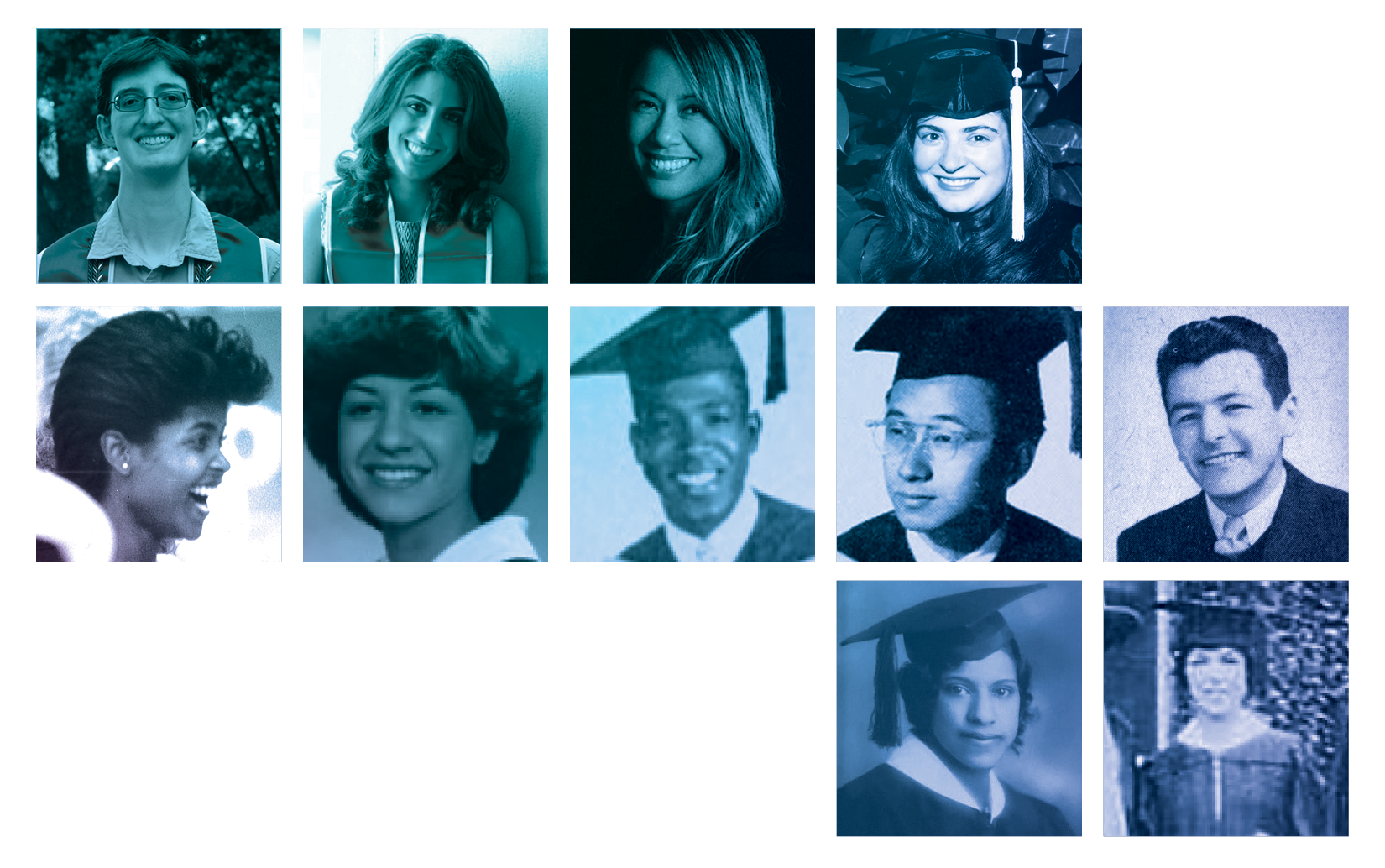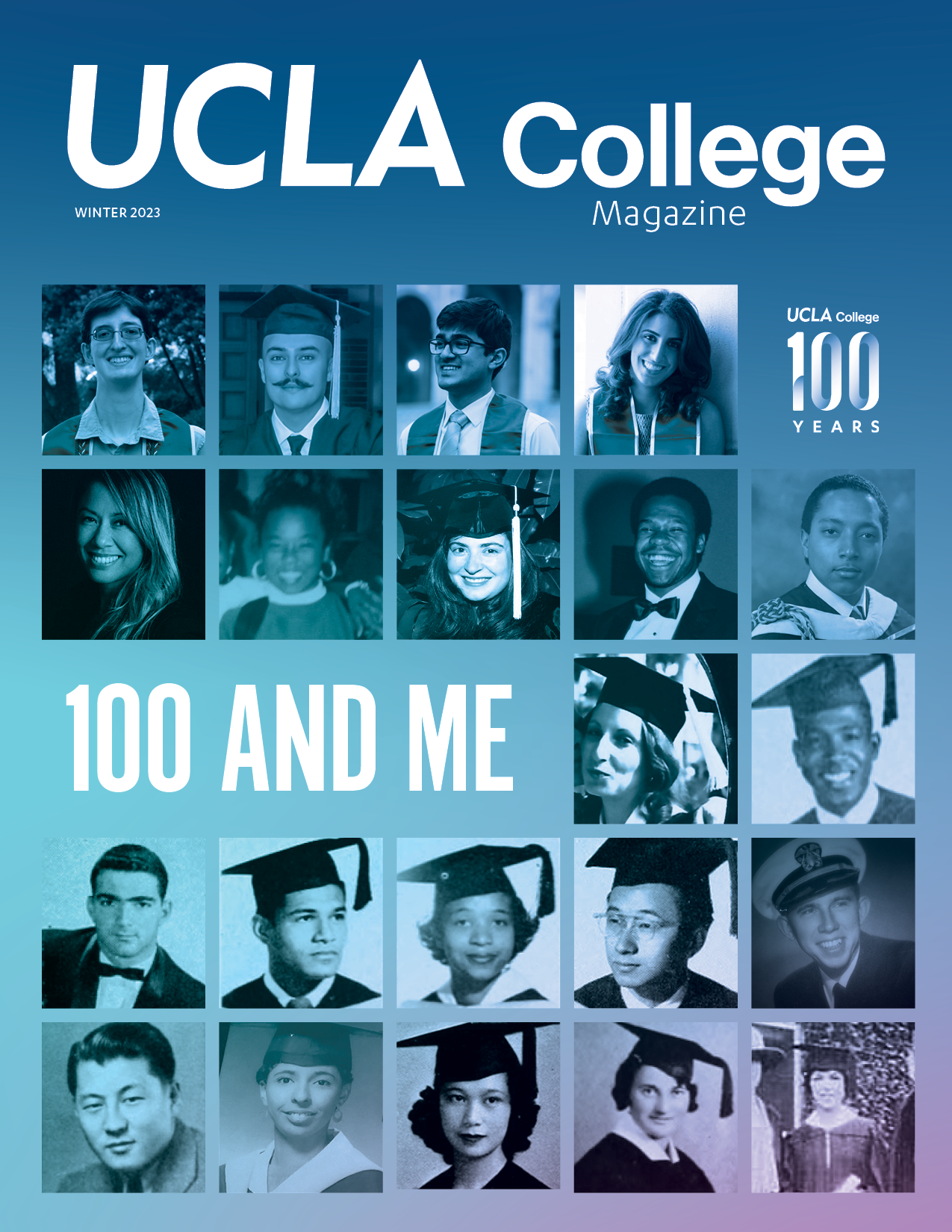With memories spanning decades, majors and interests, graduates of the UCLA College reflect on their time as students and their hopes for the College’s next 100 years. Read their stories below, and click here to share your own.
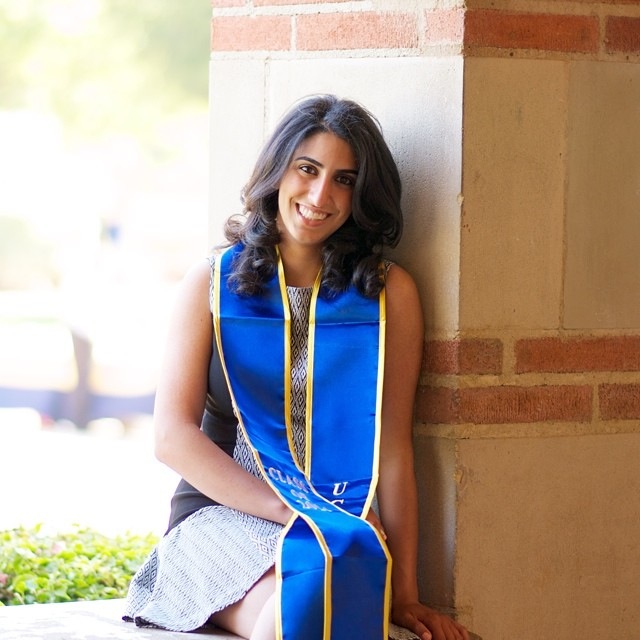
2010s
Push Boundaries
“I hope my legacy is that I was dedicated to my academics, I wanted to flourish — but I also really wanted to be involved in different parts of campus: research, internships, giving back. I want my legacy to be one that’s both academically driven and involved in other very important aspects of campus.”
Jessica Kianmahd Shamshoni ’14 | Psychology | Disability studies minor
I remember being a little overwhelmed by all the opportunities, but excited that I finally could study what I loved, choose my own classes, make new friends and explore campus. My parents met at UCLA, so I was obsessed with being a Bruin to begin with, and my older brother was already a student there as well. It was just so exciting to finally be a Bruin like others in the family. Within the large campus, I found smaller communities that made me feel at home and were an avenue for meeting some of my dearest lifelong friends.
My favorite spot on campus was Kerckhoff Patio. I loved to do work outside or take a break and have lunch, and there was always somebody you knew walking by. It was relaxing when it needed to be, and intense with work when it needed to be. It was nice to have a place everyone could enjoy and take a breather in the midst of so much.
I came into college knowing I wanted to pursue a profession in the healthcare field, but I wasn’t sure exactly what that would be. That being said, I had my heart set on pursuing a psychology major; I’d loved the topic of psychology in high school, and dedicated a lot of time to working with kids with disabilities. As an undergraduate, I worked in the lab of one of my psychology professors, Dr. Steve Lee, and I eventually became his lab manager when I graduated.
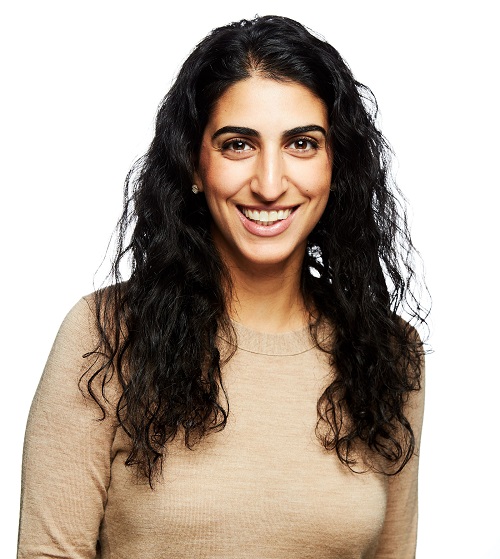
Today, Jessica is a genetic counselor in the Department of Human Genetics, David Geffen School of Medicine at UCLA.
At the same time, I was also in the Fernald Child Study Center Research Intern Program directed by Dr. Bruce Baker. I loved being involved in research and seeing an idea turned into a research question, then into a project and later into useable results. Some classmates and I were accepted to present our undergraduate research poster at UCLA and some other campuses, which was such an empowering experience as an undergraduate.
Freshman year, I took a Fiat Lux course taught by two genetic counselors, Dr. Christina Palmer and Michelle Fox, both of whom are still colleagues and mentors of mine. That’s where I first learned about genetic counseling and fell in love with the profession. Dr. Palmer, the Director of the UCLA M.S. in Genetic Counseling Program, was the faculty advisor for a student group that I helped to start and lead, the UCLA Genetic Counseling Student Interest Group. Eleven years later, it’s still running very strong, has grown so much and has helped many students pursue a career in genetic counseling. I’m very proud of this group.
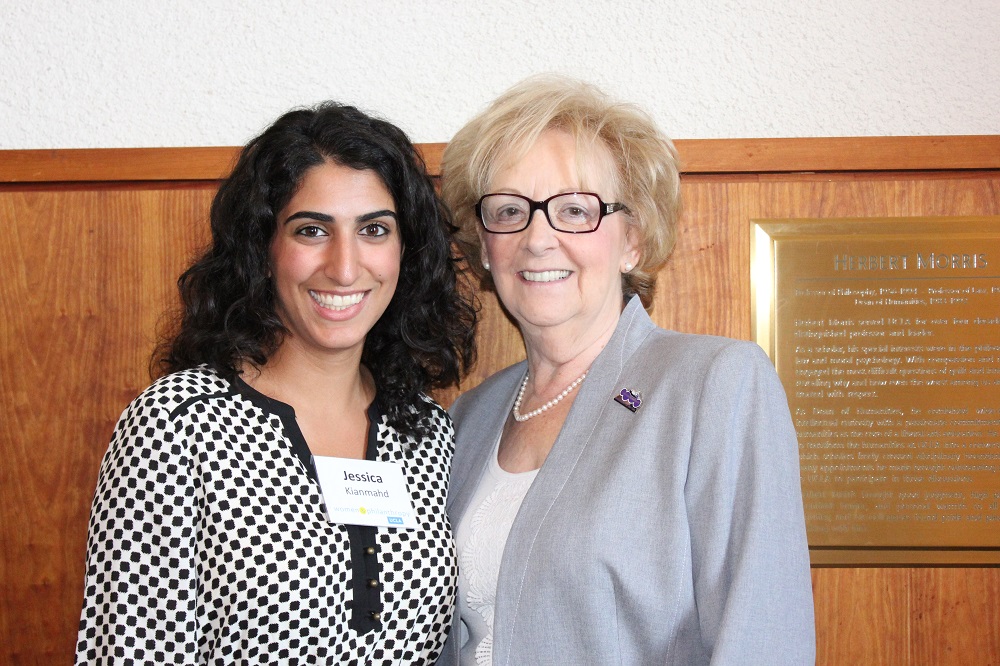
2013: With Linda Oschin (right) on receiving the Samuel Oschin Scholarship. Each year, the award supports promising students in the disability studies minor for their ongoing dedication to service and advocacy on issues of importance to the disability community.
I love and am committed to teaching and education; after five years as a clinical genetic counselor at the David Geffen School of Medicine at UCLA, I now dedicate my time as teaching faculty for the UCLA M.S. in Genetic Counseling Program. I see this as a beautiful full circle!
I didn’t know about the disability studies minor until a year or two into my time at UCLA, but adding the minor ultimately played an integral role in my personal and professional life. It allowed me to focus on a particular area I was interested in, create important relationships with faculty and put knowledge into practice.
I also was a counselor with Camp Kesem for three of my undergraduate years. It’s a weeklong sleepaway camp for kids of all ages whose parents have or had cancer. It was very special for me to be part of a group of energetic, giving, loving, empathic classmates committed to this cause — everyone’s creativity, excitement and compassion shined. I’m so grateful that I had opportunities to connect with students of different backgrounds, ages, majors and interests in a unified cause that was meaningful to all of us for varying reasons.
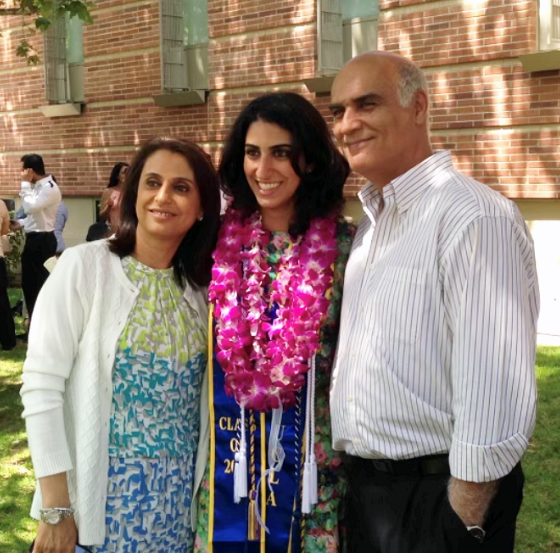
2014: With her parents on Commencement Day
The disability studies minor shaped such an important part of my career path, and I’m grateful for having been able to add an academic lens to something that is personally meaningful. Being able to do an internship at the same time as the coursework and the capstone project really helped me put what I was learning in the classroom into effect. The opportunities at UCLA were vast, and I very much appreciated that.
I hope in the next century we have a campus where more students have access to opportunities and there are respectful, empathic, open conversations to push the boundaries in a productive way. For example, I want us to support people with disabilities with respectful and productive conversations, discussion and action. I hope to see students take their passion for their interests and do good with it — that we have a world we all work to improve using our own capacities and interests.
Special thanks to the UCLA Alumni Association and UCLA Alumni Diversity Programs & Initiatives.
Visit them to further explore the UCLA College community.
![]()
Los Angeles, CA 90095


